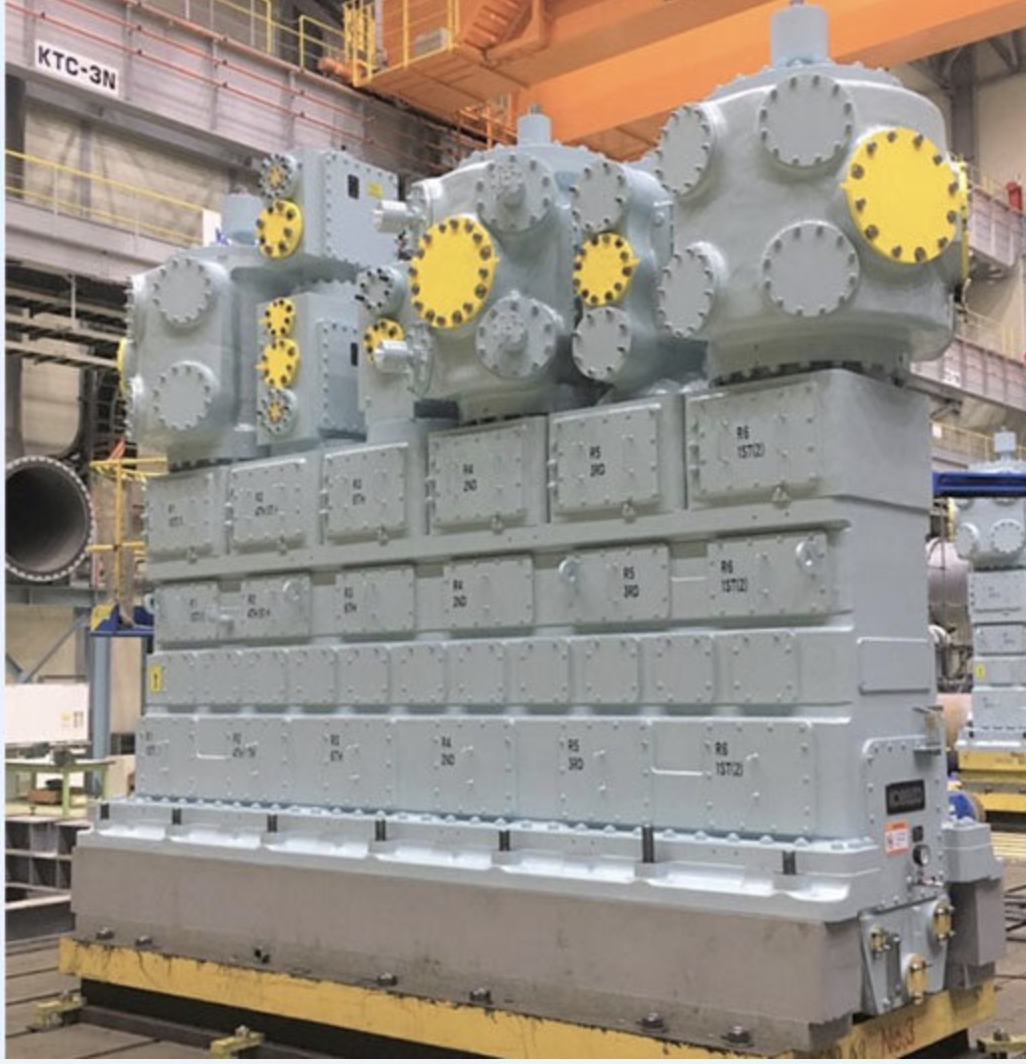Understanding the MSO Compressor in FSRU Operations
Floating Storage and Regasification Units (FSRUs) play a crucial role in the LNG supply chain by receiving, storing, and regasifying liquefied natural gas (LNG) before delivering it to the grid. One key component found in some FSRUs is the Minimum Send-Out (MSO) Compressor. However, not all FSRUs, are equipped with one. In this article, we will explore the role of the MSO compressor, its benefits, and the challenges faced by an FSRU without it.
What is an MSO Compressor? The MSO compressor is an essential piece of equipment designed to maintain a minimum flow rate of natural gas from the FSRU to the shore pipeline, ensuring a stable gas supply even during low-demand periods. It plays a pivotal role in the send-out process when the gas flow requirement from the grid is minimal but continuous pressure must be maintained.

Kobelco MSO Compressor
Benefits of the MSO Compressor in FSRU Operations
Ensures Continuous Operations: The MSO compressor prevents disruptions by maintaining a stable send-out rate even when demand fluctuates, reducing the risk of sudden shutdowns.
Optimizes Boil-Off Gas (BOG) Management: Without an MSO compressor, excess BOG may have to be either flared, vented, or burned in regas boilers, leading to potential inefficiencies and increased emissions.
Enhances Pressure Control: It helps maintain the required pipeline pressure levels, ensuring smooth operation and compliance with grid delivery standards.
Reduces Fuel Gas Consumption: Since the MSO compressor provides efficient gas delivery at low send-out rates, it minimizes unnecessary fuel gas consumption in regas boilers, ultimately reducing operational costs.
Improves Overall System Flexibility: The ability to handle a broader range of send-out rates provides the terminal with greater flexibility to respond to fluctuating market demands without affecting system stability.
Challenges of Operating Without an MSO Compressor
For FSRUs, that do not have an MSO compressor, several operational challenges may arise:
Higher Fuel Gas Consumption: In the absence of an MSO compressor, LNG is often converted to vapor using additional energy from regasification boilers, increasing overall fuel consumption.
Limited Low-Rate Operations: Without an MSO compressor, the FSRU may struggle to maintain gas delivery at low demand, leading to either excessive BOG accumulation or operational inefficiencies.
Potential for Increased BOG Handling Issues: Excess BOG must be managed through combustion or venting, which could lead to inefficiencies, increased emissions, and potential regulatory concerns.
Operational Constraints During Low Demand: An FSRU without an MSO compressor may face difficulty maintaining a stable operation when grid consumption is at its lowest, potentially forcing a shutdown or a change in operation mode.
The presence of an MSO compressor in an FSRU significantly enhances operational flexibility, reduces fuel consumption, and ensures a stable minimum gas send-out to the grid. While some FSRUs, can operate without one, they may face challenges in maintaining efficiency during periods of low demand. As LNG infrastructure evolves, future FSRU designs may prioritize incorporating MSO compressors to optimize operations and enhance reliability.
For LNG professionals and FSRU operators, understanding the impact of an MSO compressor on operational efficiency can help in making informed decisions about equipment selection and process optimization.
